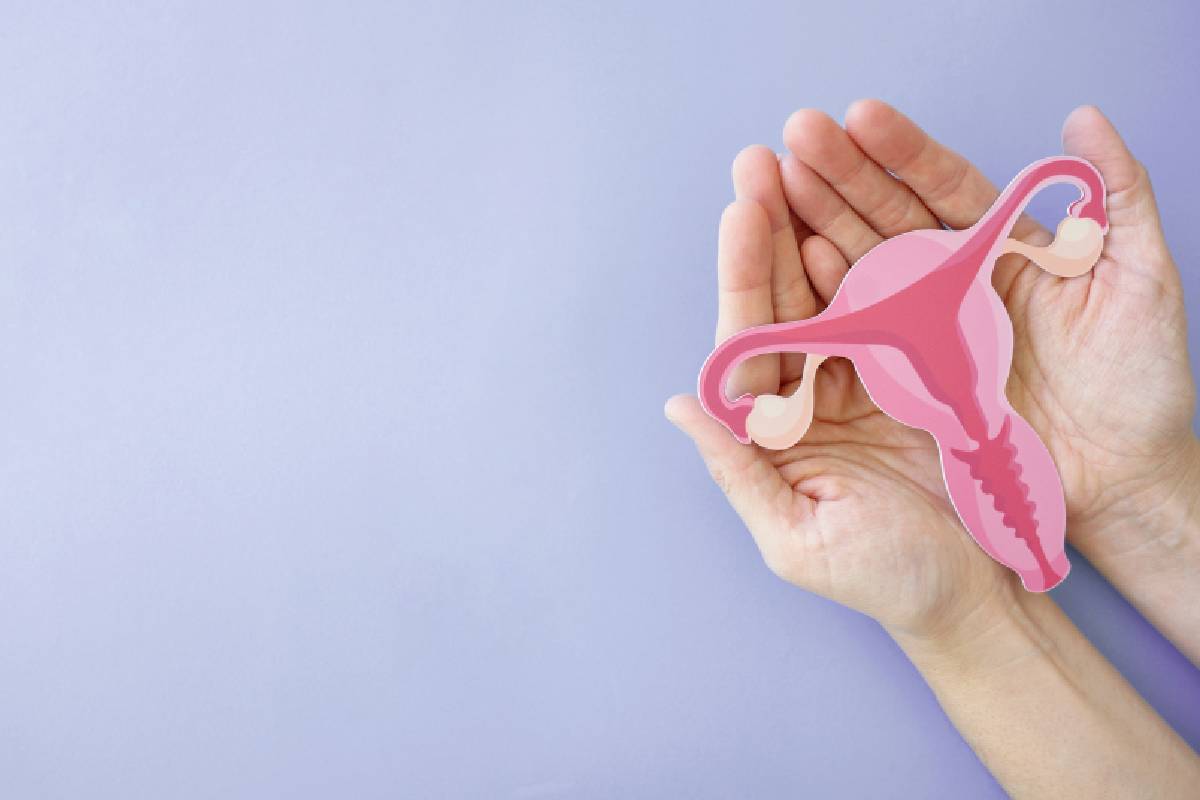
By: A Woman’s Place in Naples, FL
September is PCOS Awareness Month, a time to shine a light on one of the most common—but often misunderstood—hormonal disorders affecting women. Polycystic ovary syndrome (PCOS) impacts up to 1 in 10 women of reproductive age, yet many go undiagnosed or struggle to find the right care. At A Woman’s Place in Naples, FL, we’re here to educate, support, and empower women with PCOS to understand their bodies and take charge of their health.
What Is PCOS?
PCOS is a hormonal imbalance that interferes with ovulation and causes a range of symptoms. Despite its name, you don’t need to have ovarian cysts to be diagnosed with PCOS. The condition is characterized by at least two of the following:
- Irregular or absent periods
- Elevated androgen (male hormone) levels
- Polycystic ovaries on ultrasound
This syndrome can affect more than just fertility—it can impact metabolism, skin, hair, weight, and long-term health.
What Are the Signs and Symptoms of PCOS?
Every woman with PCOS experiences it differently, but common signs include:
- Irregular or skipped periods
- Excess facial or body hair (hirsutism)
- Acne or oily skin
- Thinning hair or hair loss on the scalp
- Weight gain or difficulty losing weight
- Dark patches of skin (especially on the neck or underarms)
- Fertility issues
What Causes PCOS?
The exact cause of PCOS isn’t known, but it is often linked to:
- Insulin resistance: Many women with PCOS have difficulty processing insulin, leading to weight gain and increased androgen levels.
- Genetics: PCOS often runs in families.
- Hormonal imbalance: Elevated levels of androgens can disrupt normal ovulation.
How Is PCOS Diagnosed?
There’s no single test for PCOS. Diagnosis typically involves:
- A review of your medical history and symptoms
- A physical and pelvic exam
- Blood tests to check hormone levels
- An ultrasound to look for polycystic ovaries
Can PCOS Be Treated?
There’s no cure for PCOS, but it can be managed. Treatment is individualized and may include:
- Lifestyle changes: Diet, exercise, and weight management are foundational in improving insulin sensitivity and reducing symptoms.
- Hormonal birth control: To regulate periods and reduce androgen levels.
- Metformin: A medication to improve insulin sensitivity.
- Fertility treatments: If you’re trying to conceive, medications like Clomid or letrozole may help stimulate ovulation.
Why PCOS Awareness Month Matters
Raising awareness helps reduce stigma, encourages early diagnosis, and highlights the importance of supportive care. Early treatment can reduce the risk of long-term complications, such as:
- Type 2 diabetes
- High blood pressure
- Heart disease
- Endometrial cancer
- Depression and anxiety
Support and Care in Naples, FL
At A Woman’s Place in Naples, FL, we offer compassionate, personalized care for women with PCOS. Whether you’re managing symptoms, concerned about fertility, or looking for long-term health strategies, our team is here to help. To schedule an appointment, visit: https://www.awpnaples.com/contact/
Further Reading
By: A Woman’s Place in Naples, FL
September is PCOS Awareness Month, a time to shine a light on one of the most common—but often misunderstood—hormonal disorders affecting women. Polycystic ovary syndrome (PCOS) impacts up to 1 in 10 women of reproductive age, yet many go undiagnosed or struggle to find the right care. At A Woman’s Place in Naples, FL, we’re here to educate, support, and empower women with PCOS to understand their bodies and take charge of their health.
What Is PCOS?
PCOS is a hormonal imbalance that interferes with ovulation and causes a range of symptoms. Despite its name, you don’t need to have ovarian cysts to be diagnosed with PCOS. The condition is characterized by at least two of the following:
- Irregular or absent periods
- Elevated androgen (male hormone) levels
- Polycystic ovaries on ultrasound
This syndrome can affect more than just fertility—it can impact metabolism, skin, hair, weight, and long-term health.
What Are the Signs and Symptoms of PCOS?
Every woman with PCOS experiences it differently, but common signs include:
- Irregular or skipped periods
- Excess facial or body hair (hirsutism)
- Acne or oily skin
- Thinning hair or hair loss on the scalp
- Weight gain or difficulty losing weight
- Dark patches of skin (especially on the neck or underarms)
- Fertility issues
What Causes PCOS?
The exact cause of PCOS isn’t known, but it is often linked to:
- Insulin resistance: Many women with PCOS have difficulty processing insulin, leading to weight gain and increased androgen levels.
- Genetics: PCOS often runs in families.
- Hormonal imbalance: Elevated levels of androgens can disrupt normal ovulation.
How Is PCOS Diagnosed?
There’s no single test for PCOS. Diagnosis typically involves:
- A review of your medical history and symptoms
- A physical and pelvic exam
- Blood tests to check hormone levels
- An ultrasound to look for polycystic ovaries
Can PCOS Be Treated?
There’s no cure for PCOS, but it can be managed. Treatment is individualized and may include:
- Lifestyle changes: Diet, exercise, and weight management are foundational in improving insulin sensitivity and reducing symptoms.
- Hormonal birth control: To regulate periods and reduce androgen levels.
- Metformin: A medication to improve insulin sensitivity.
- Fertility treatments: If you’re trying to conceive, medications like Clomid or letrozole may help stimulate ovulation.
Why PCOS Awareness Month Matters
Raising awareness helps reduce stigma, encourages early diagnosis, and highlights the importance of supportive care. Early treatment can reduce the risk of long-term complications, such as:
- Type 2 diabetes
- High blood pressure
- Heart disease
- Endometrial cancer
- Depression and anxiety
Support and Care in Naples, FL
At A Woman’s Place in Naples, FL, we offer compassionate, personalized care for women with PCOS. Whether you’re managing symptoms, concerned about fertility, or looking for long-term health strategies, our team is here to help. To schedule an appointment, visit: https://www.awpnaples.com/contact/









